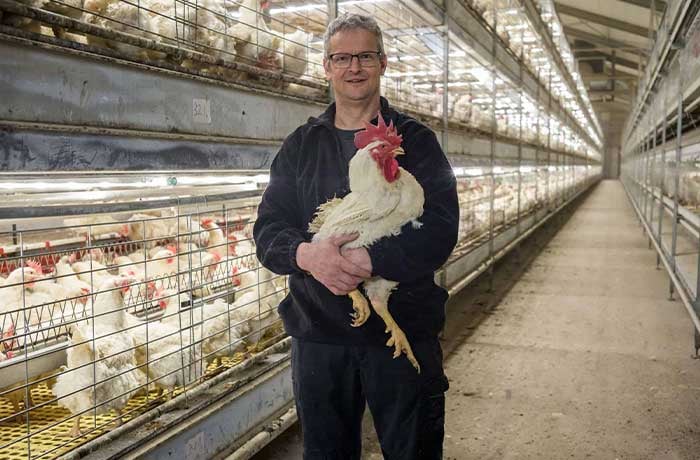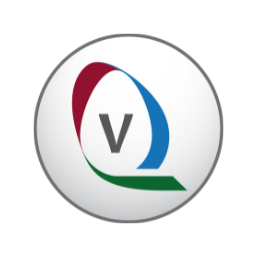René and Jolanda van Doren together have a family business with 60,000 broiler parents in Zeeland (NB). Despite the fact that they have a permanent employee, the children still like to work in the company on occasion. In addition to the work on the poultry farm, René is also a member of the volunteer fire brigade. He is also on the editorial board of Bravo magazine. His wife Jolanda is a member of the members' council of ABZ Diervoeding.
Some history
'In the 1960s my father had a business in Boekel with some 7,500 broiler parent animals', says René van Doren at the kitchen table. Two of the three sons eventually continued as farmers. My brother Jan in the mothers and I in Zeeland in fattening pigs. When Jan decided to quit, Jolanda and I took over the entire business in 1994. As the location in Boekel was too small to expand and the distance between Boekel and Zeeland was too great, we decided to move the two broiler houses to Zeeland. Because two businesses were too labour-intensive and there was more interest in poultry, we divested the broiler branch in 2002 and started to specialise entirely in broiler parent stock'.
Veranda
"What makes our company special is that we opted for the Veranda system from the start. I remember my first visit to a Veranda house and was immediately impressed,' says René. I saw the advantages and possibilities of this housing system. Of course, in the beginning we had some teething problems. The results were particularly challenging, but in the meantime we have achieved good results on the Veranda for 20 years. Cumulatively, the results have been above 85% for years. When, in 2013, the Veranda no longer complied with the welfare regulation, we developed "the Veranda 2.0", as I call it, in cooperation with Vencomatic Group. We replaced the old inventory and added a third house which allowed us to keep 60,000 broiler parent animals'.
'The Veranda is a group housing system. The hens and roosters are housed in groups of about 1,500 animals. In the house there are different levels at which the hens are housed. All levels are equipped with manure belts, which are turned daily. Each group is provided with water, feed, nests and scratching facilities. The animals have access to a scratching area above the laying nest in which they can scratch and dustbathe. Fresh air of 20° C always reaches the chicken. After feeding, the feeding system is elevated so that our animals have a larger living area.'
'Working with the Veranda system gives us a lot of pleasure and ease of work,' adds Jolanda. René and our permanent employee Dawid work together in the barn. I help collect the eggs myself and take care of the entire financial administration'.
Continuously in motion
'We are a progressive, innovative company and constantly on the move. Our goal is to supply high quality hatching eggs with attention to sustainability, the environment and animal welfare', says René. For example, we work with Vencomatic Group and ABZ Diervoeding on innovative developments. For example, we test different types of lighting, grids and nesting substrates and carry out trials to improve the results. We are currently carrying out tests with ionisation and together with Kuijpers Techniek we are developing a spraying trolley to make the red mite problem between manure belts and grids manageable. This looks promising'.
'Of course, we are not losing sight of the cost price. Without a low cost price, we can't operate in a global market,' explains René. The Veranda system, in combination with the drying tunnel, ensures that we don't have any manure, heating and sawdust costs. We also have our own water source and energy is generated using solar panels. Furthermore, all the stables are equipped with LED lighting. Because of this, our water and energy costs are low. Our company has the highest hygiene status and we do not use antibiotics. This is necessary if you export almost all eggs'.
From an environmental point of view, but also from a welfare point of view, we have invested in a drying tunnel. Manure is a source of disease and misery and must therefore be removed from the barn as soon as possible. When it is removed from the barn, the manure has a dry matter content of 55%. In the drying tunnel the manure is dried above 80% with warm stable air. This produces a valuable product which is sold to a manure processor. The manure processor turns it into granules that are exported'.
Optimal climate for animal welfare
In the stable, René and Jolanda have a high ammonia reduction. Fresh air is brought to the animals through the heat exchanger. The manure is also removed from the barn twice a day. This combination is the basis for good results and an optimal climate in the house. An additional advantage is that you do not smell any ammonia. We only ventilate half of the air in a ground barn', says René. This keeps the heat better in the barn'.
The heat produced by the animals themselves in combination with the heat exchanger means that there is no need to heat the house. In the summer we use mist cooling at the inlet valves,' explains René. We can cool back 3 to 4 degrees. That way we don't suffer from a drop in production or failure due to heat stress'.
The Van Doren family's company currently complies with the province's ammonia guidelines of 2028. A 70% reduction in particulate matter is already being achieved. They also amply comply with the welfare ordinance as it currently stands. The high quality hatching eggs lead to a low drop-out rate in the first week of life of the broiler farmer.
Fire safety
'Because of my hobby with the volunteer fire brigade, fire safety is inextricably linked to our company. Stable fire is terrible when it happens to you and bad for the image of the sector. René and Jolanda already took it into account during construction in their choice of materials. The stable consists of several compartments equipped with smoke detectors and a good extinguishing and water supply. All switch cabinets hang in one compartment; in one separate technical room. In the barn there are sensors that give an alarm if the temperature fluctuation is too great. René points out the importance of good maintenance. 'The main reason for house fires is short circuit number one, but maintenance number two. Awareness of this is important in preventing', he says. In short: make sure your barn is in order.
Text: ABZ Animal Nutrition












.png?width=160&height=132&name=Egg%20packers%20-%20Vencomatic%20Group%20(2).png)
.png?width=160&height=132&name=Meggsius%20Select%20-%20Vencomatic%20Group%20(2).png)














